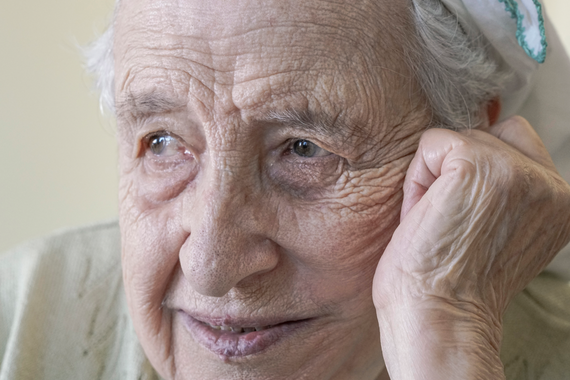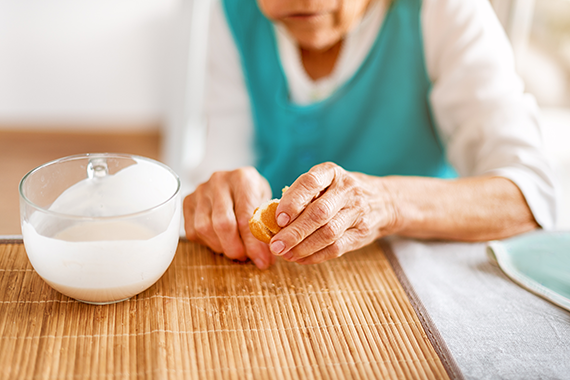-
The University
- Welcome
- Who we are
- Media & PR
- Studying
-
Research
- Profile
- Infrastructure
- Cooperations
- Services
-
Career
- Med Uni Graz as an Employer
- Educational Opportunities
- Work Environment
- Job openings
-
Diagnostics
- Patients
- Referring physicians
-
Health Topics
- Health Infrastructure
Research
Different projects on COVID-19 are currently being conducted to describe the quality of care during the coronavirus crisis by considering psychological stress on caregivers. Another study examines physical, psychological and social impacts on certified healthcare providers and caregivers during the COVID-19 pandemic. An international study investigates the use of technology and behavior of adults 18 years and older during the COVID-19 pandemic in different countries. This survey asks questions on the use of technology, social media platforms, isolation and loneliness.

Research projects

PQE 2.0
- The Quality of Care Survey 2.0 (PQE 2.0) is an annual survey in Austrian healthcare facilities that collects and analyses information on the care problems of pressure ulcers, incontinence, malnutrition, falls, measures that restrict freedom/restrict freedom, pain, quality indicators and preventive measures and interventions implemented.
- Duration: 2009 (since 2016 as version 2.0) - ongoing
- Project partners: Austrian healthcare facilities such as hospitals, university clinics, nursing homes, etc.
- Research: Maastricht University, Department of Health Services Research, NL, Bern University of Applied Sciences, Department of Health, Applied Research & Development Nursing, Istanbul University, Istanbul Faculty of Medicine, Dep. Internal Medicine, TR, University of Nottingham & Division of Medical Sciences and Graduate Entry Medicine, School of Medicine, Royal Derby Hospital, UK

Age and nursing
- Several research groups are investigating various aspects of ageing and care and their influence on care practice. The results serve, among other things, to optimally prepare carers for caring for this group of people.
- Exemplary: Attitudes of people in healthcare professions towards older and very old people
- Duration: 2019 - ongoing
- Project partners: University of Gothenburg, Institute of Health and Care Sciences, S, Universidad Corporación en Estudios de la Salud (CES), Medellín, Colombia

Malnutrition
Multiple research projects on the topic of malnutrition are conducted at the institute such as the creation and testing of questionnaires to determine the state of knowledge and attitudes of care staff/doctors in different facilities on the topic of (mal)nutrition. Implementation and use of (screening) tools by different occupational groups. Based on these results, targeted and diverse teaching and learning events are designed, conducted and evaluated and offered online and in other formats.

Sarkopenie
- The aim of the project is to provide essential findings for the development of innovative strategies for the prevention of sarcopenic obesity. In the course of this, an evidence-based app will be developed and tested. The Institute of Nursing Science is leading work package 3, which focuses on identifying and evaluating current best practices for the prevention and treatment of sarcopenic obesity.
- Duration: 01.04.2022 - 31.03.2025
- Project partners: Faculty of Sports and Nutrition, Amsterdam University of Applied Sciences, Erasmus Medical Centre, Clermont Auvergne University, Unité de Nutrition Humaine, Hospital Universitario Ramón y Cajal / Instituto Ramón y Cajal de Investigación Sanitaria (IRYCIS)
- Funding organisations: Federal Ministry of Education, Science and Research (FFG), JPI HDHL - PREPHOBES Call 2020

Care dependency
Care dependency has been an emphasis at the institute for many years. The focus is on applying the care dependency scale (CDS) in nursing practice. By implementing and applying the scale, valuable skills can be obtained related to care dependency of people in various institutions (hospitals, care homes, hospice, etc.) with various diseases (e.g., dementia, chronic obstructive pulmonary disease) or at end of life.

Opinion Lab
- The Opinion Lab focusses on transdisciplinary collaboration in order to combine nursing science and nursing practice. The researchers are integrated into the everyday life of a residential care home and staff, residents and relatives are involved in the research process. Over the next five years, a research culture is to be created in the care home. Both sides should benefit from each other and work together on care-related topics.
- Duration: 2022 - 2027
- Funding organisations: FWF Austrian Science Fund
- Project partners: Caritas Pflegewohnhaus Graz St. Peter, Maastricht University, Department of Health Services Research, NL, University of Leeds, Faculty of Medicine and Health and School of Healthcare, UK

SUNRISE - SUstainable healthy NutRition In nurSing homEs
Nursing homes face the challenge of combining the special nutritional needs of older people with the principles of sustainability. As part of the SUNRISE project, a practice-oriented guide to promoting sustainable healthy eating in care facilities is being developed in close cooperation with employees and residents of a Caritas care home. The citizen scientists contribute their individual experiences to the data collection, analysis and interpretation as well as the development of the guidelines, thus ensuring that they are implemented in a way that is relevant to everyday life and meets the needs of the residents.




